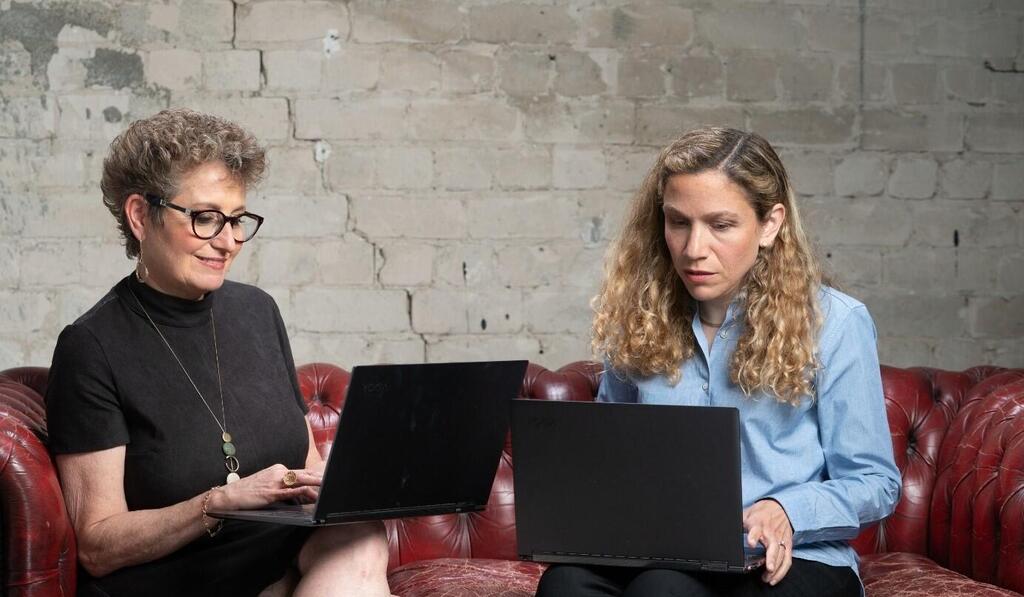
FemTech
"51% is not a niche": Startup studio impact.51 on mission to revolutionize FemTech
Co-founders of impact.51, Michal Shalem and Michal Lebenthal Andreson, spoke to CTech about establishing the first studio in the world focused exclusively on women’s health solutions
Michal Shalem and Michal Lebenthal Andreson both came from long careers in the public sector before they moved to the field of innovation. Shalem was the Chief of Staff for the Jerusalem municipality and Lebenthal Andreson was the Deputy Legal Advisor for the Ministry of Aliyah. They met during a summit in New York City and bonded over their shared interest in impact-driven innovation. This led them to found their first company in 2019, called Think Creative, a strategic firm that addresses challenges with social and economic impact including education, the future of the workforce and more.
It was during this work that their attention was drawn to the area of women’s health. “We were working in the field of systemic change and creating space for change, and some of the main issues that we were seeing time and again were in women's health. We started to zoom into this issue and understand that there is are huge unmet needs in that space, very low innovation and huge market potential,” says Shalem.
They thus decided to found their second company, a startup studio called impact.51 in 2022 with a focus on women’s health. The company’s name refers to the fact that women make up more than half of the population. “51% of the population and we’re still a ‘niche,’” scoffed Shalem.
“We saw that women's health was lagging way behind, that it was under researched, underfunded, under-innovated, everything. We thought that the fastest way to move forward was if we used a startup studio model,” said Lebenthal Andreson.
There are about 700 startup studios in the world, but in Israel, which only has a handful of studios, the model is less known. Impact.51, which functions similarly to a startup incubator, is the first studio in the world focused exclusively on women’s health solutions. The company provides an ecosystem for entrepreneurs in the field to test, develop and ultimately take their ideas to market. The goal of the studio is to build tech companies that address women’s health issues as quickly and efficiently as possible. They provide entrepreneurs with network access, knowledge and funding to ideate solutions.
Lebenthal Andreson notes that whereas a startup accelerator or incubator would take existing ideas and help develop them further, the startup studio model helps to create the startups from the ground up. She says that because the startup studio model is problem-driven, this leads to a greater chance of success for the startups. “60% of startups from startup studios succeed, which is a very high number. And, the reason for that is because they're aligned with the field and real unmet needs from the onset.”
Their model is pre-team and pre-idea, says Shalem. “We are not looking for ideas in search of a problem, but rather, are problem-focused and looking for innovative solutions.” They formulate problems to address in consultation with partners including hospitals, HMOs, women’s health organizations and NGOs, and build startups with the goal of addressing these set challenges.
“What differentiates the startup studio model, and certainly the model that we've built in impact.51, is that we’re a co-founder of each startup together with the entrepreneurs. We have skin in the game. We're not just connecting entrepreneurs to investors, but going with them from the definition of the challenge through validating the idea, building the value proposition, solution, business model, helping them to prepare the pitch, and later the prototyping, the business plan etc.,” Lebenthal Andreson says.
In their inaugural cohort of companies, the issue that impact.51 selected along with their partners was solutions pertaining to menopause. They selected this issue after careful deliberation, and after identifying that it offered a huge landscape of unmet needs. “We saw that the place that has the most investment right now in FemTech is in fertility and reproduction. That space is full. So we said, well, what's missing? We were interested in solutions for menopause because that's a space with a void and huge market potential,” says Shalem, noting that by 2030, 1.2 billion women will be in menopause worldwide, and the market is estimated to grow to over a trillion dollars.
They submitted a call to action which received 100 applications. The studio accepted 48 entrepreneurs into their first cohort and curated teams from among them. “They go through a 12-week program, which goes from understanding the problem, defining it even deeper, immersing themselves in the field and the material, etc. Then they ideate solutions and at the end of the 12 weeks they pitched to investors. We had 11 companies pitch and ultimately selected two to move to the impact.51 foundry,” says Shalem. The teams came up with solutions including medical devices, apps, digital health services and more.
Now impact.51 is preparing to launch their second cohort and are looking at subjects including cardiovascular disease, endometriosis and maternal mortality among others. While their first cohort was mainly Israeli, they plan to incorporate more international entrepreneurs into their next cohort and are working on collaborations with international challenge partners.














